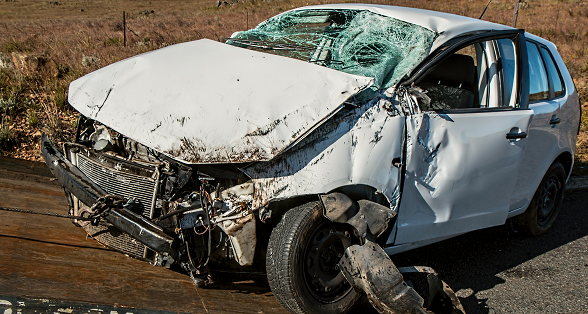
The legal profession is on a collision course with the Government over its pilot citizens’ jury initiative to reform compulsory third party insurance in the ACT.
An alliance of legal groups – the ACT Law Society, the ACT Bar Association and the Australian Lawyers Alliance – has embarked on a lobbying campaign, including setting up a website, actctp.org, and an online petition, to help protect the current CTP scheme.
The alliance fears the citizens jury plan is but another attempt to restrict the scope of CTP in the ACT and remove the rights of some groups of people injured in motor vehicle accidents to compensation.
Although the ACT Law Society and the ACT Bar Association are included in the Stakeholder Reference Group that will develop possible CTP models, the alliance believes the exclusion from citizens’ jury selection of personal injury lawyers and those currently going through the CTP system makes it a flawed process.
The alliance said it would provide a comprehensive view of the current CTP scheme to the public, outline changes that would protect the elements of fairness and transparency, inform the public about what has happened in other States that have gone down a restrictive, cut-price CTP path, and serve as a platform for Canberrans to ask questions about the pilot citizens’ jury model.
President of the ACT Law Society, Sarah Avery, said the jury selection process and the way information would be provided to the jury lacked transparency.
“What were worried about is the actual members of the jury itself, that it’s not a good representation of Canberra to automatically exclude people from the jury who are going through this process now, and who might be able to give the other jury members some information on what it’s really like,” she said.
But Chief Minister Andrew Barr said the Government had brought in independent deliberative democracy experts democracyCo to facilitate the citizen’s jury.
“democracyCo has extensive experience in running citizen’s juries and have designed the process based on their experience,” Mr Barr said. “As part of this process, representatives of the legal profession will be included on the stakeholder reference group and also have the chance to share their views with the jury.”
Ms Avery believed Mr Barr had a number of more restrictive CTP schemes in mind as future models for the ACT.
She said these models restricted benefits for some people so those injured in no-fault accidents could be compensated “but those people are able to access medical treatment already so it just means that people who currently get access to money would have a little bit more access”.
“Our fear is that people with greater need won’t have those needs met,” she said.
Ms Avery said trade-offs in other states and territories included changes to thresholds where a person had to be injured at a certain level or suffer impairment of the whole body to be eligible to enter a compensation scheme.
“Which means that people might have injuries that don’t seem that serious in terms of their body function but the effect on their whole life is very serious,” she said.
Ms Avery said the ACT’s CTP scheme also compensated people very well for loss of enjoyment of life – pain and suffering and general damages – which was not the case in other jurisdictions.
“The courts recognise that accidents can have a big impact on people psychologically and quality of life. We don’t even have the highest premiums in the country but we’re still well covered. That’s something we would like to protect,” she said.
“If the ACT Government pushes through its preferred scheme, it will mean more injured people will be forced into the social welfare system, or forced to take out expensive private injury and income protection insurance, rather than, as they do now, getting a level of compensation that would enable them to have flexibility as to how their injuries are treated and to pursue the recovery of the actual loss they have suffered.”
But Mr Barr said the Government did not have a specific position in mind for how the CTP scheme should look. “That’s why we’re doing a citizens’ jury process. It gives a group of Canberrans, representative of the community, the opportunity to look at this issues in depth and make recommendations to the Government on how the community wants CTP to work,” he said.
The alliance is also concerned about the short timelines for convening the citizens’ jury as well as the limited information available on the ACT Government website.
“The rushed timelines for commencing the citizen’s jury process have been dictated by the Government. We have to ask why Mr Barr is rushing this through,” Ms Avery said.
She believed insurers had not been lobbying for change.
“It’s important for people to understand that most people who are involved in car accidents are covered by our CTP scheme and that’s not just people in cars but other road users such as pedestrians and cyclists. Most people, even those who don’t pay CTP premiums, are very well covered by this system,” Ms Avery said.
While the legal profession is critical of the Government’s approach “if we can use the process to improve the current scheme that would be an excellent outcome”.
Mr Barr said people who were not on the jury could find out more about CTP and provide their views on the Your Say website here, and the information would be given to the jury to consider.
Ms Avery said that in 2010 the ACT Government attempted to introduce changes to CTP under the Road transport Amendment (Third Party Insurance) Bill 2010 that would have would have curtailed the ACT community’s existing rights.













